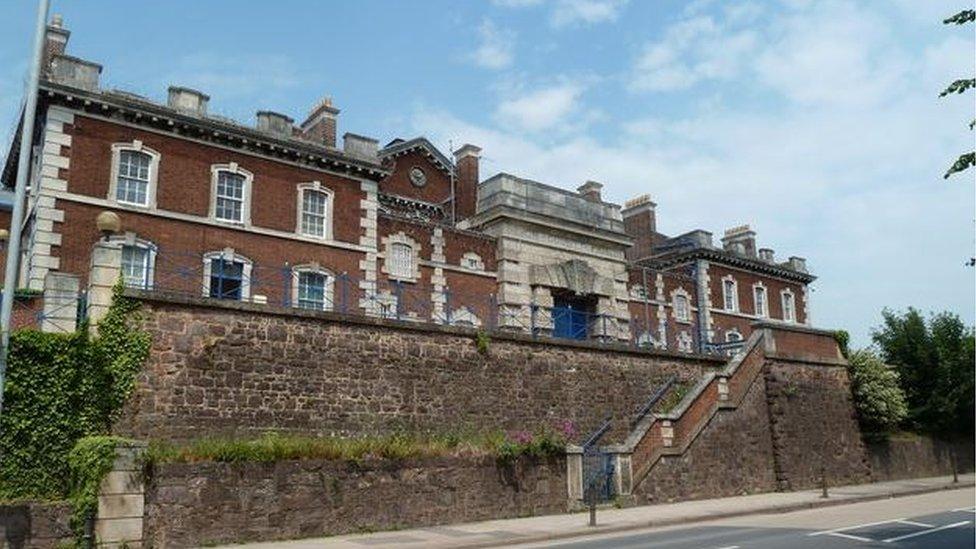Deaf prisoner in crisis reviewed through locked cell door at HMP Exeter
- Published
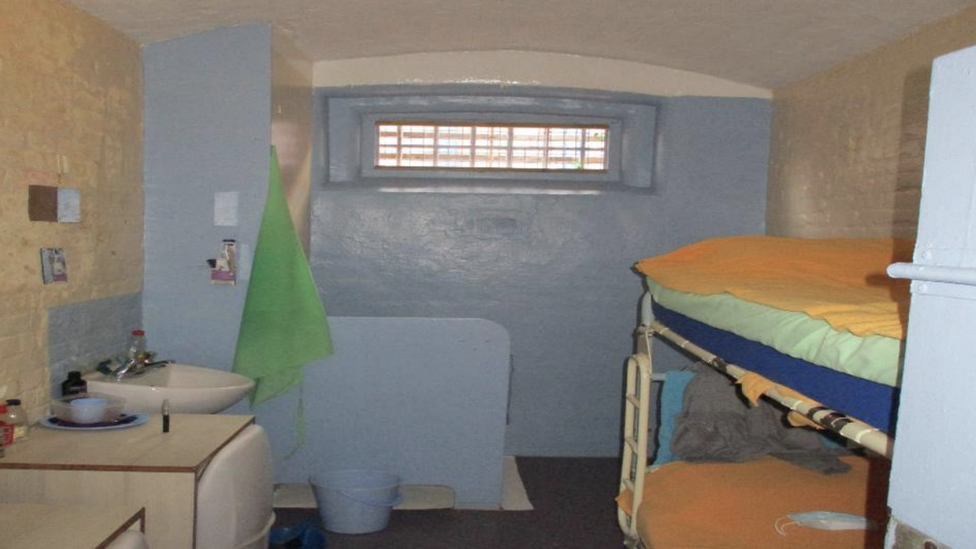
Prisoners self-isolating during the coronavirus pandemic were not able to leave their cells or shower for 10 days
A deaf prisoner in crisis was given a mental health review through a locked cell door, a report has found.
Other failings at HMP Exeter included placing a disabled inmate on the fourth floor and problems with staff culture.
HM Inspectorate of Prisons said, external prisoners were unable to leave their cells or shower for 10 days while isolating during the Covid-19 pandemic.
A Prison Service spokesperson said specialist training was being delivered to all new officers at Exeter.
The last full inspection at the prison took place in May 2018 when serious safety failings were found, and a review in 2019 said improvements were still needed.
The latest inspection took place in March and found "further progress has been hampered by high turnover of staff at all levels".
Charlie Taylor, Her Majesty's Chief Inspector of Prisons, said there were "many areas" that needed to improve.
He added: "Some examples of this included unresponsiveness to prisoner requests and enquiries, insufficient care for prisoners at risk of self-harm or suicide and indifference to the needs of prisoners with physical disabilities, one of whom we found located on the fourth landing of a wing."
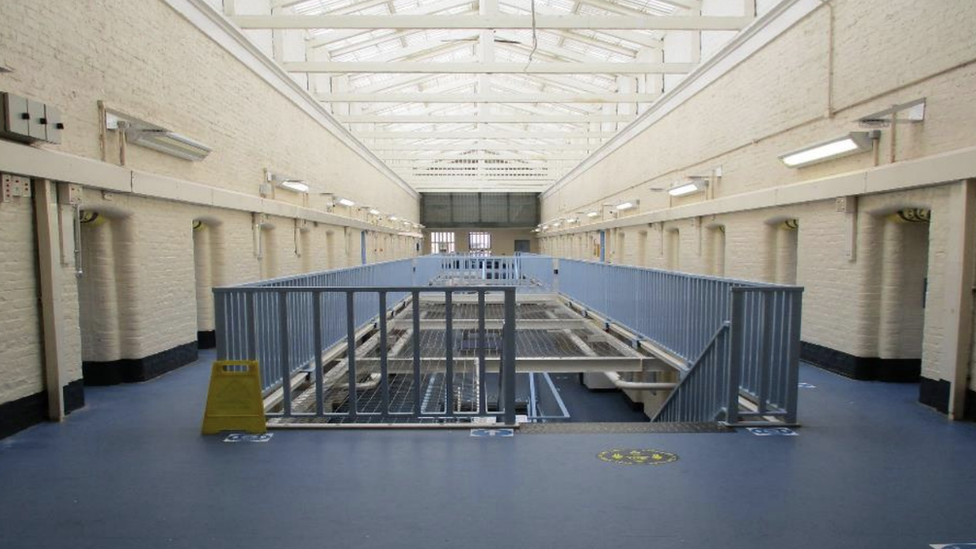
A disabled prisoner was housed on the fourth floor of the prison
The report stated almost 60% of black and ethnic minority prisoners told inspectors they felt bullied and victimised by staff.
It found that while the number of general assaults had dropped, the level of self-harm was "very high" with three self-inflicted deaths occurring during the pandemic.
Mr Taylor said: "We found that relationships between prisoners and staff were not good enough and many prisoners were frustrated at the difficulties they faced, for example, when making reasonable requests.
"Prisoners from a black or minority ethnic background had very poor perceptions of staff."
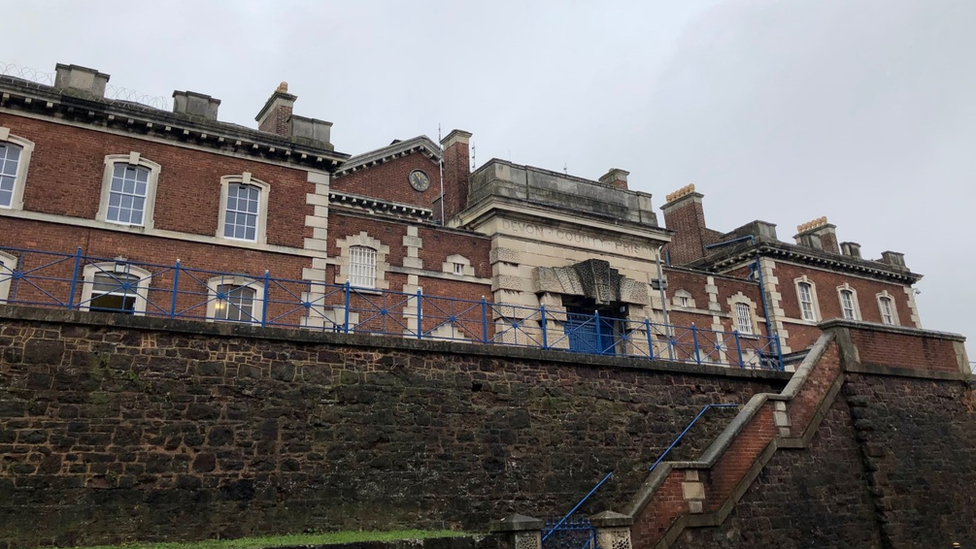
There were 432 prisoners at the time of the latest inspection
Inspectors said during the coronavirus pandemic violence had reduced and use of force by staff was reasonably well managed.
It recommended that prisoners isolating due to the pandemic should have "opportunities to leave their cell for a shower and time in the open air".
A Prison Service spokesperson said: "We're recruiting more staff and delivering specialist training to all new officers at Exeter, giving them the tools they need to support the most vulnerable prisoners.
"At the same time, x-ray scanners and enhanced security are driving down drug use and improving safety."

Follow BBC News South West on Twitter, external, Facebook, external and Instagram, external. Send your story ideas to spotlight@bbc.co.uk, external.
Related topics
- Published21 May 2019
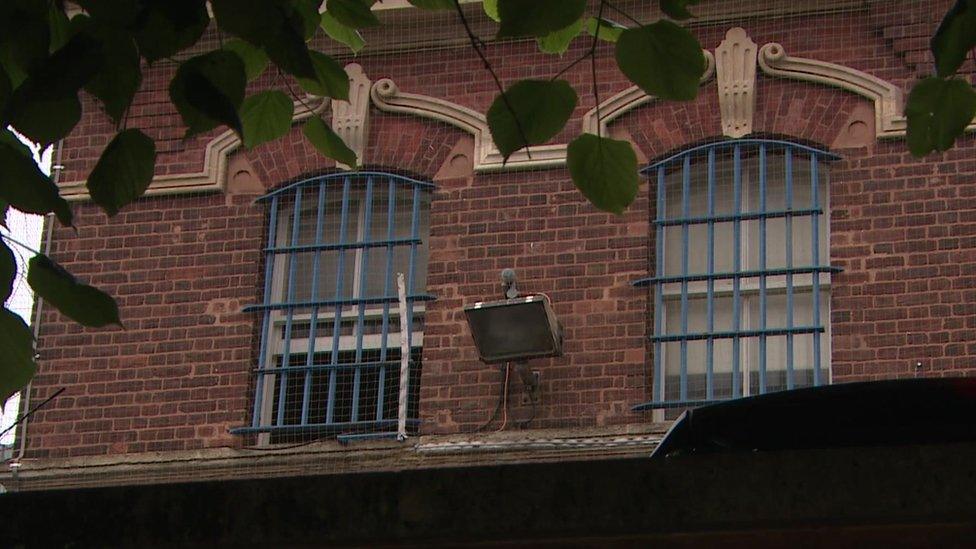
- Published9 October 2018

- Published1 February 2017
